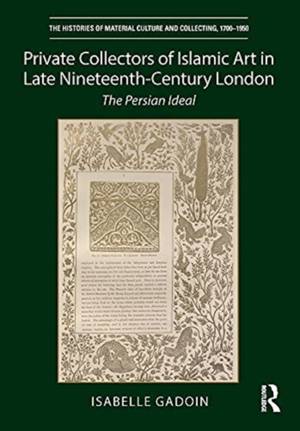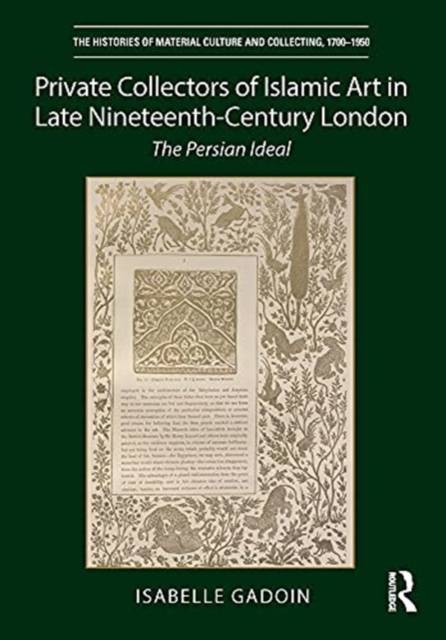
- Retrait gratuit dans votre magasin Club
- 7.000.000 titres dans notre catalogue
- Payer en toute sécurité
- Toujours un magasin près de chez vous
- Retrait gratuit dans votre magasin Club
- 7.000.0000 titres dans notre catalogue
- Payer en toute sécurité
- Toujours un magasin près de chez vous
Private Collectors of Islamic Art in Late Nineteenth-Century London
The Persian Ideal
Isabelle GadoinDescription
This book examines British collectors of so-called Persian art (a broad umbrella term then covering a large portion of Islamic art) in the late 19th century, including ceramics, metalwork, carpets, textiles and woodwork.
Based on a foundational event, the very first exhibition of "Persian and Arab Art" held by a London Gentlemen's Club in 1885, this book follows one generation of men, retracing the subtle shades of difference among "amateurs," "connoisseurs," "experts" and "collectors," and exploring all the mechanisms of the construction of a collective fascination for the Orient. Isabelle Gadoin uncovers some of the first "scientific" analyses of Islamic objects and of the first private notebooks or exhibition catalogues, to provide an in-depth study of the way Westerners talked about Islamic objects and began to define what would become Islamic art history. All the while, Gadoin unravels the skein of Western prejudice, Romantic fancy, sincere admiration and ruthless appropriation, in art collecting, to write a new chapter of Orientalist history.
The book will be of interest to scholars working in art history, history of collecting, colonialism and postcolonialism, and Orientalism.
Spécifications
Parties prenantes
- Auteur(s) :
- Editeur:
Contenu
- Nombre de pages :
- 216
- Langue:
- Anglais
- Collection :
Caractéristiques
- EAN:
- 9780367766023
- Date de parution :
- 10-09-21
- Format:
- Livre relié
- Format numérique:
- Genaaid
- Dimensions :
- 175 mm x 246 mm
- Poids :
- 539 g

Les avis
Nous publions uniquement les avis qui respectent les conditions requises. Consultez nos conditions pour les avis.






